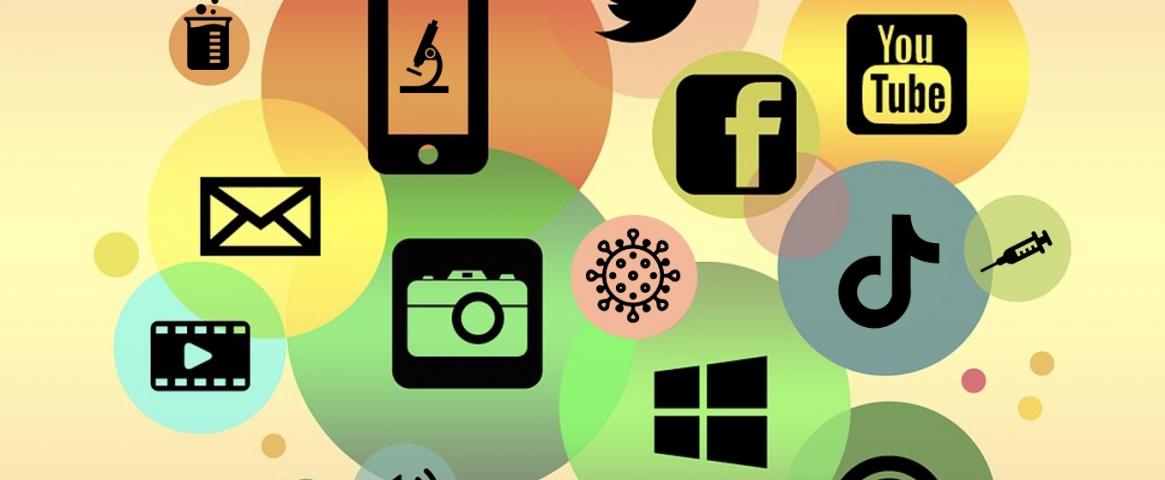By Alia Sajani
Scientists are under attack. From the visceral disparagement of public health officials by the anti-mask and anti-vax communities to the recent calls from Republicans in Congress to “Fire Fauci” or prosecute him, the response to the pandemic has revealed new challenges to scientific progress.
The decision to wear a mask, get the vaccine, and listen to public health officials, or not, have become political statements. This disconnect between medical advances – namely effective COVID-19 vaccines – and hesitancy to get the vaccine, along with the perpetuation of misinformation about these vaccines, leads health and science experts to liken what’s happened to a new kind of public health emergency.
Dr. David Morens, senior scientific advisor to Dr. Anthony Fauci, director of the National Institute of Allergy and Infectious Diseases, said “these dangerous lies can kill people.”
The easy spread of information on social media is primarily to blame, he said.
Most social media misinformation related to COVID-19 vaccines has originated from 12 people whose content is read and shared by millions of people around the world, who then reject the possibility of getting vaccinated. This has, in turn, led to vaccine-hesitant people in some states now encountering some of the highest levels of recent COVID-19 hospitalizations and deaths.
But can social media also be used to change public perception of vaccines?
Two scientists who are passionate about science communication said “yes.”
Anna Blakney, an assistant professor of biomedical engineering at the University of British Columbia, and Azza Gadir, an immunologist and scientific advisor at Seed Health, are using social media for “good,” to educate people who are unsure about vaccines in innovative ways.
Blakney, who worked on RNA vaccine delivery systems pre-COVID, is a member of Team Halo, a collaboration between The Vaccine Confidence Project and United Nations Verified Initiative to encourage volunteer scientists to make vaccine-related content for social media channels.
With a TikTok following of more than 232,000, Blakney combines current trends with science, creating videos of less than 3 minutes to educate viewers about vaccines and immunology, to the backdrop of a catchy song or soundbite. By making science fun, Blakney demonstrates to non-researchers that scientists are regular people – just like them – that can be trusted.
Gadir engages with the public on a more personal level and on multiple platforms.
After offering to hold one-on-one Zoom calls with vaccine hesitant individuals and families through her Instagram account, where she debunks misinformation, Gadir’s schedule soon filled up with requests.
She talks with family members with contrasting views to help them navigate the decision-making process with a scientist in the room. Given her expertise, she can guide people through concerns, and does so empathetically.
Gadir has also started using Clubhouse, engaging directly with people promoting anti-vax content. There, she enters rooms where people are discussing a particular topic. She then requests to go onto the virtual stage to debunk dangerous misinformation directly to the people spreading that content to various audiences.
“Scientists have thought data is enough… but being passive is not enough,” she said. “Science needs to be on the offense.”
Through her one-on-one sessions and engagement on platforms where misinformation is spreading, Gadir sets an example of the novel ways in which scientists can fight misinformation.
It’s a concept Morens agrees with.
“If scientists don’t engage with the public as experts, other people will,” he said.
Teaching people how to think like scientists can help as well.
“People successfully make risk-benefit analyses in their lives on a daily basis, and the decision of whether or not to get the vaccine is the same” said Gadir.
Blakney is in favor of this approach, too.
“As scientists, we understand that data is constantly changing, and part of the scientific process is to reevaluate the data and adapt policies,” she said.
In other words, anyone can be a scientist, with a little help and understanding from the experts.
Alia Sajani is pursuing a doctoral degree in immunology at Dartmouth College, where she is studying the processes that keep the immune system from attacking the rest of the body. She has written for the NIH Catalyst and ImmunoBites blog. Sajani is passionate about diversity and inclusion in science. You can find her on Twitter @AliaSajani.
This story was produced as part of NASW's David Perlman Summer Mentoring Program, which was launched in 2020 by our Education Committee. Sajani was mentored by Mary Guiden.




